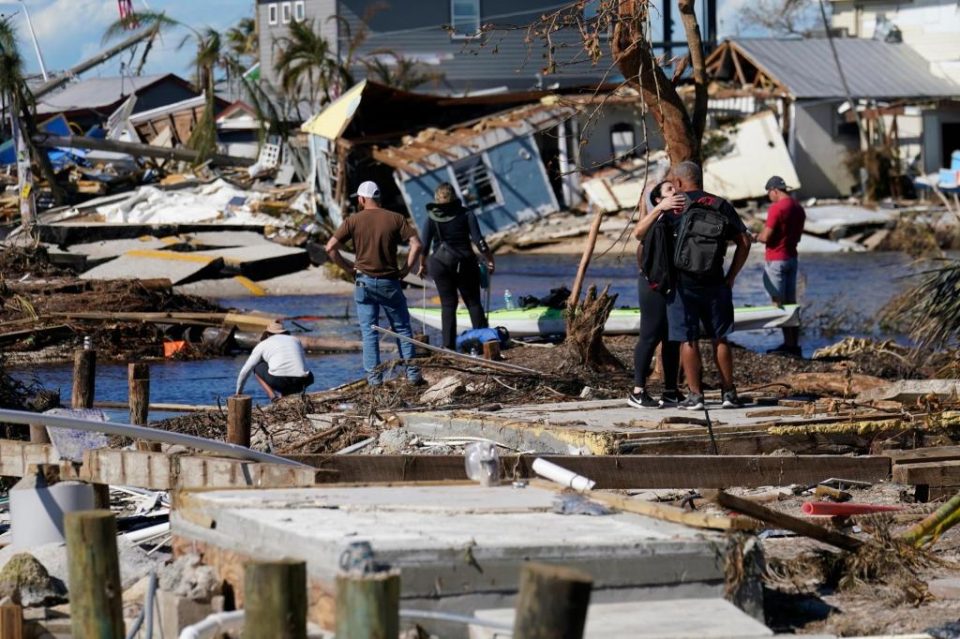In the aftermath of the extreme devastation caused by Hurricane Ian, the National Center for Disaster Fraud has warned that after any major disaster, unscrupulous individuals will be waiting to take advantage of others’ misfortune.
Created by a partnership between the U.S. Department of Justice and various law enforcement and regulatory agencies, NCDF’s goal is to improve and further the detection, prevention, investigation and prosecution of fraud related to natural and manmade disasters, and to advocate for the victims of such fraud.
Potential victims include those personally impacted by that Category 4 hurricane, and individuals in this state and around the country who wish to make disaster-relief donations.
Florida Attorney General Ashley Moody has already sounded the price-gouging alarm, as residents in that state try to rebuild lives washed away by Ian’s wind and water damage.
Thousands of Floridians displaced by Ian are in dire need of food, shelter, debris removal or home repairs. That also goes for Massachusetts residents with second homes in the Sunshine State.
The Federal Trade Commission offers tips to consumers about schemes that target people recovering from a natural disaster.
Here are some ways to avoid common post-disaster scams:
• Be skeptical of anyone promising immediate clean-up and debris removal. Some may quote outrageous prices, demand payment upfront, or lack the appropriate skills.
• Check them out. Ask for IDs, licenses, and proof of insurance. Don’t believe any promises that aren’t in writing. Check with the local Better Business Bureau concerning the contractor’s reputation. In this state, you can check a Massachusetts business license through the Division of Occupational Licensure.
• Never pay by wire transfer, gift card, cryptocurrency, or cash. And never make a final payment until you’re satisfied with the work done.
• Guard your personal information. Only scammers will say they’re a government official and then demand money or your credit card, bank account, or Social Security number.
• FEMA doesn’t charge application fees. If someone wants money to help you qualify for FEMA funds, that’s probably a scam.
• Spotting bogus disaster-related charities. Check out the FTC’s advice on donating wisely. Suspect a scam? Report it to the FTC at reportfraud.ftc.gov.
Of course, countless legitimate charities that have rushed to deliver critically needed aid in Florida are worthy of your financial support.
A recent PBS report listed several such organizations:
• Hundreds of trained American Red Cross volunteers are seeking donations to assist in their ongoing efforts. Donations to Direct Relief support the purchase of medications, equipment and supplies that address chronic gaps in health care, while helping those advanced in age, suffering from chronic conditions, or require electric power for life support equipment.
• Americares, which provides surge medical support in areas affected by disaster or conflict, is asking for donations, some of which will go to funding their network of partner clinics and centers in Florida.
• The International Medical Corps has deployed a mobile medical unit in Port Charlotte, providing outpatient services to more than 100 people daily, at the request of the state’s Department of Health.
• Project Hope, an international humanitarian nonprofit, is raising funds to support its statewide emergency response, which includes delivering medical supplies, PPE and disaster hygiene kits.
• Feeding South Florida, a food bank in the Feeding America national nonprofit network, seeks donations to alleviate hunger for residents in Palm Beach, Broward, Miami-Dade and Monroe counties.
• Mercy Chefs, a Virginia-based, faith-driven nonprofit founded after Hurricane Katrina, is preparing as many as 30,000 meals each day in Fort Myers; it’s seeking support so it can maintain its mission in southwest Florida.
• Heart of Florida United Way, an Orlando-based organization funding critical health and human services programs for central Florida, is accepting donations to its hurricane recovery fund.
Ian’s wrath has left many Floridians destitute and despondent. They desperately need the aid that reputable charities deliver.
Just make certain that if you make a donation, do it with your head, not your heart.


